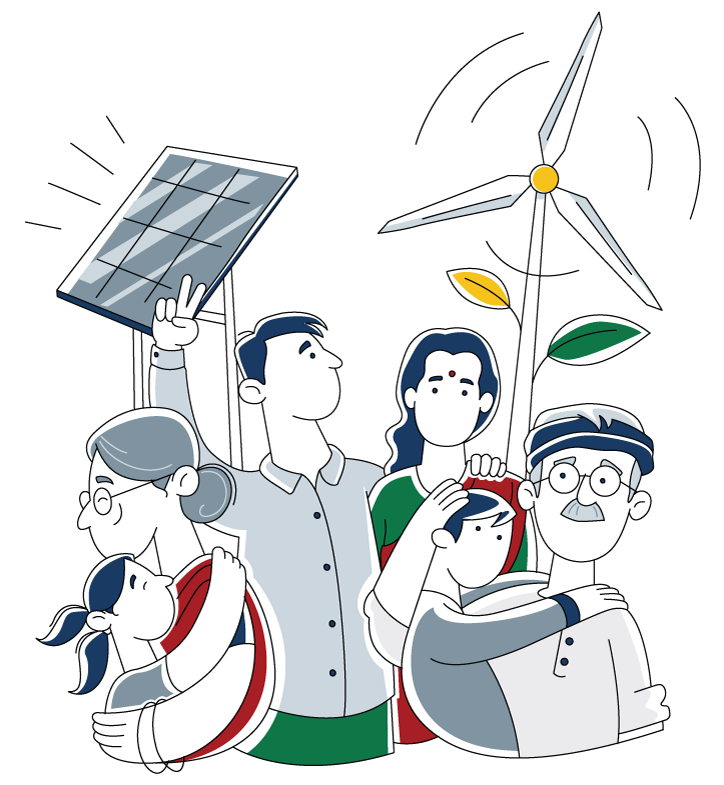India has committed to becoming a net-zero economy by 2070. Being the largest contributor to the emissions of greenhouse gases,
the energy sector would have to transition from its current fossil dependence to a carbon-free energy system in a short period of 50 years.
This would entail transforming both large and small consumers, directly or indirectly contributing to GHG emissions, by targeting sectors with
relatively low-hanging abatement opportunities as well as those that are hard-to-abate. Throughout this process, it is critically important to stay on track with the Sustainable Development Goals (SDGs). While some of the aligned SDGs focus on building the adaptive capacity of the most vulnerable to ensure energy transition and incorporate the impacts of climate change, one has to keep in mind that the 17 goals are integrated and indivisible. The fine balancing act entails a combination of innovative business and growth models suitable to India’s needs, careful management of the environmental resources, and a deliberate effort to integrate employment creation to sustainably and successfully transition to a net-zero economy. In this process, all stakeholders in the transition chain, across scale and geography, need to be informed, actively engaged, and equipped with the right solutions that would lead to a net-zero, sustainable society.












